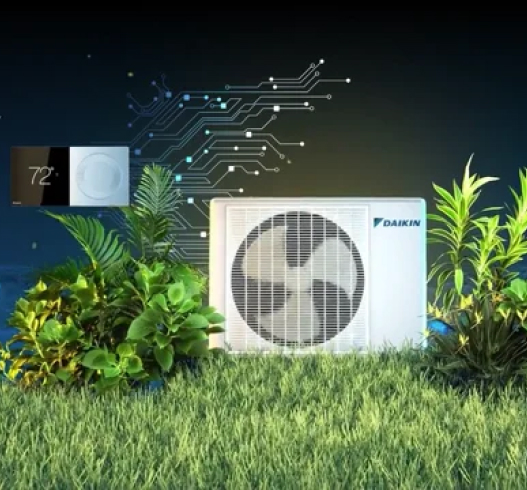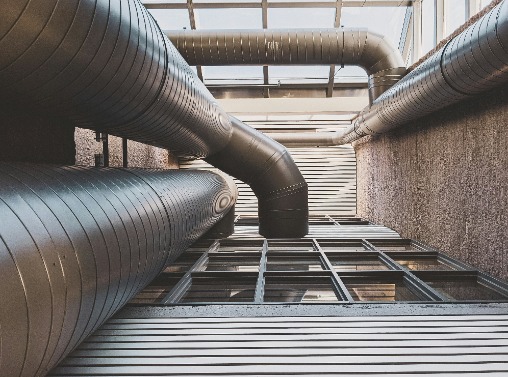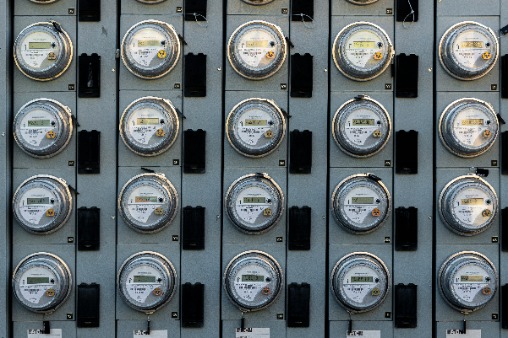Multi-Zone Benefits of Mini-Splits

Ductless heating and cooling systems have grown in popularity in recent years as more people become aware of their many benefits. While ducted systems are still a very common type of HVAC system, there are several reasons why ductless systems may be a great choice for your home.
What is ductless heating and cooling?
Ductless heating and cooling systems are designed to maintain indoor comfort without the need for ductwork (flexible metal or synthetic tubes) or a connected whole-home centralized system.
A ductless system, sometimes referred to as a mini-split system, is often used in small spaces, like a bedroom, office, or workshop. You can also have them installed in a renovated attic space or a room addition without having to make any costly ducting changes to your home. Ductless units come in single and multi-zone formats. In the later, each Indoor unit has its own thermostat and operates independently from others, even when connected to a single outdoor unit.
How does it work?
Ductless heating and cooling system do not use ducts (flexible metal or synthetic tubes) to circulate the air through your home. With this type of equipment, the air from the room is pulled into the wall, floor or recessed ductless unit, blown over a heated or cooled evaporator coil (depending on your indoor comfort needs), and that conditioned air is circulated back into the room. This makes it possible for you to maintain the desired temperature in each room without relying on a single temperature range for your entire home.
What’s the difference between a ducted and ductless HVAC system?
Here are three key differences between these two types of systems:
Housing Footprint
A ducted system will take up additional space in your home for the ductwork. While these ducts are usually hidden from plain sight, they still require a certain amount of space within the attic, walls and/or ceilings of your home. Ductless systems do not have this requirement and can prove vital when remodeling or building a new home with limited space, as only electrical wiring and small refrigerant piping is required to connect between the indoor and outdoor units.
Efficiency
Ducted systems rely on a network of ducts to circulate the air throughout your home. However, up to 20-30% of the air moving through these ducts can be lost due to leaks, holes, or poorly connected ducts. This can lead to uncomfortable temperatures in certain home areas and unnecessarily high energy bills. A ductless system is designed to reduce your overall energy output by eliminating this air loss. Ductless systems also provide the added benefit of controlling the temperature in each room, allowing to turn off areas not in use, resulting in even more savings.
Why should I get a ductless system for my home?
Older homes are very good candidates for ductless type systems as they have traditionally not been planned with ductwork. A ductless system allows you to update the home’s heating and cooling system without major remodeling work to be done. In these cases, the upgrade can often be done at a fraction of the cost compared to Installing a whole home system, inclusive of ductwork.
Ductless heating and cooling systems are also a great option for people who prefer indoor comfort customizations at a room-by-room level. These systems allow temperatures to be adjusted for a single zone rather than having to set one temperature for the entire house. Most ductless units have an excellent energy-efficiency rating, resulting in additional savings on your electric bill.
Finally, because these systems tend to be quiet, the outdoor equipment can be located virtually anywhere without disrupting a homeowners' enjoyment of their home and backyard, like on a patio or a balcony.
FAQs about ductless heating and cooling
Is ductless heating and cooling a good idea?
Installing a ductless heat pump system is a great idea because it can be an energy-efficient way to heat and cool your home.
Can you have multiple ductless units in one house?
Yes, you can have multiple units installed throughout your home and they'll work independently from one another.
What is the preferred way to use a thermostat for this unit?
Most ductless systems are equipped of a handheld remote controller, like one you find with a TV set. However, most brands also offer wall mounted smart thermostat options that allows for additional functions such as WIFI connectivity.
Homeowners HVAC Guide: Ultimate Zoned Comfort
In this article
Connect on Social Media
 Follow on Facebook
Follow on Facebook
 Follow on YouTube
Follow on YouTube
 Follow on Instagram
Follow on Instagram
 Follow on X
Follow on X
 Follow on TikTok
Follow on TikTok
 Follow on Pinterest
Follow on Pinterest

Looking for help now?
Enter your zip code to search for Daikin Contractors in your area.
Learn More
Learning Center Content
Stay informed about home comfort technology, when to upgrade, energy efficiency, and reducing your energy bills.






























